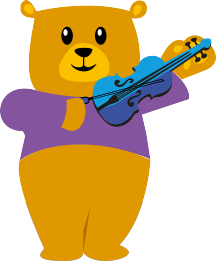
Music Therapy
All Ages
Who does a music therapist work with?
Music therapy can be particularly beneficial for people who have difficulties communicating as it offers them a means of self expression without words, building a sense of awareness and self esteem.
Music therapists work with both children and adults affected by illness, injury or disability such as:
- Social / Emotional/behavioural problems
- ADHD
- Sensory Problems/Impairment
- Developmental Delay
- Down’s Syndrome
- Autistic Spectrum Conditions
- Communication Disorders
- Learning Disability
- Acquired brain injury
- Life-limiting illness
- Neurological conditions
To find out more please contact Lbmusic@gmx.co.uk

How can music therapy help my child?
Music therapy can help children and young people with a range of different needs.
- Express how they are feeling
- Support the development of family and peer relationships
- Increase self awareness, build self esteemand resilience
- Develop social interaction and communication skills
- Enhance creative and spontaneous play
- Improve attention, memory, listening and co-ordination
Music therapists often work with other health care professionals within social care and education.
What happens in a session?
Music Therapy sessions are child centred and allow them to explore sounds and music in their own way. The music therapist and child participate in activities such as playing instruments, singing songs, listening to music and using music technology. Children are given plenty of time to initiate or respond during the activities and will experience being listened to, heard and accepted. This helps to build a positive and therapeutic relationship between child and therapist.
